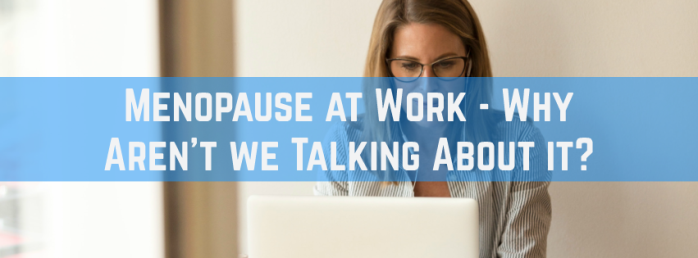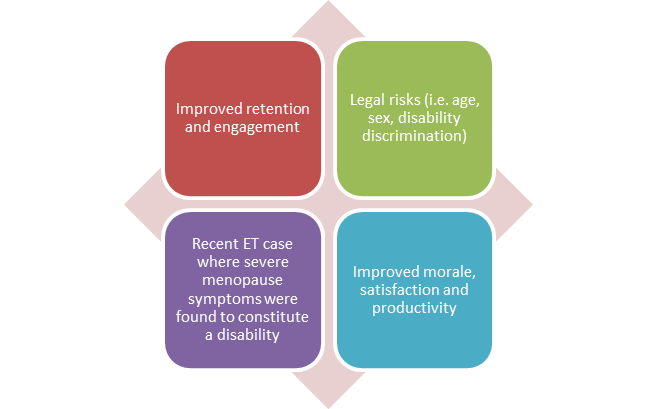Menopause at Work
|
|
How many conversations have you had about menopause at work recently?If it’s not very many, then you’re not alone. Despite the increasing numbers of women in their late forties and early fifties in today’s workplace, employers for the most part are not discussing this ‘taboo’ subject with their staff. This could be for a multitude of reasons; they’re unsure how to approach it, worried about causing offence or just simply don’t know where to start. Menopause is a natural stage of life that whilst affecting all women differently, does nonetheless affect all women. Given that our population is 51% female and 70% of this group are in work, it’s essential that employers have the confidence and knowledge to appropriately support their female employees, striving to accommodate their wide ranging needs. 6 out of 10 women……reported menopausal symptoms negatively impacting on their work, according to research undertaken by the CIPD. Furthermore, 10% of women reported having to stop working altogether because of the difficulties they were facing during the menopause. Given that nearly four million women aged 45-55 are in work at the moment, what seems like a relatively low percentage actually accounts for around 400,000 women, which is a huge amount of females exiting the workforce. Why is it an employer’s responsibility?Aside from it being the right thing to do from a moral and ethical perspective, given the duty of care to its employees, there are a number of reasons why an employer should support their staff who are going through the menopause, including… |
|
|
|
The more common menopausal symptoms tend to include night sweats, hot flushes, difficulty sleeping and concentrating, but there can be up to 80 symptoms of the menopause alone. What can we do?
|

